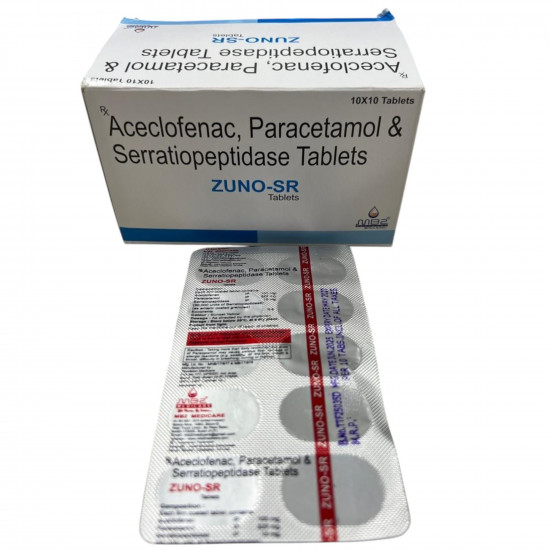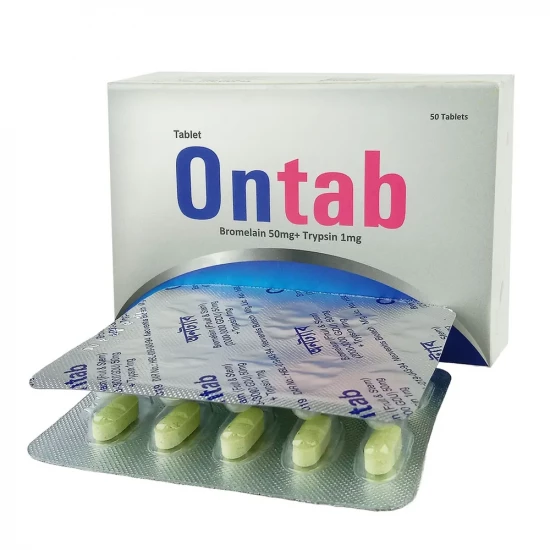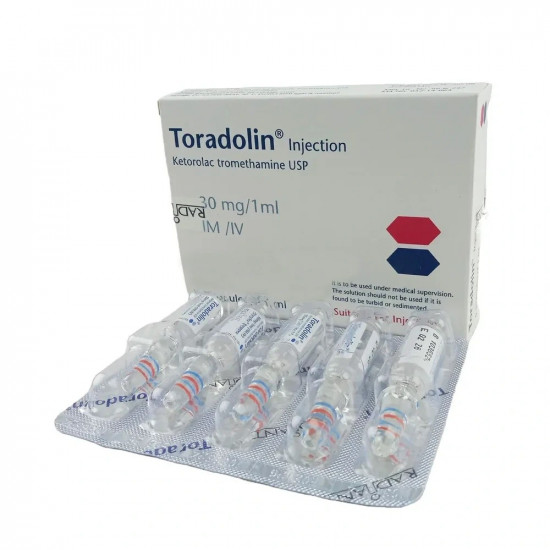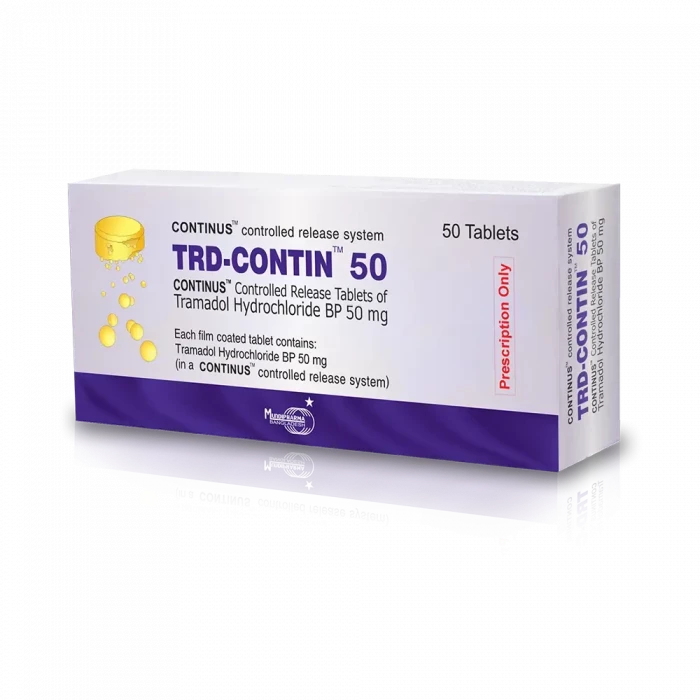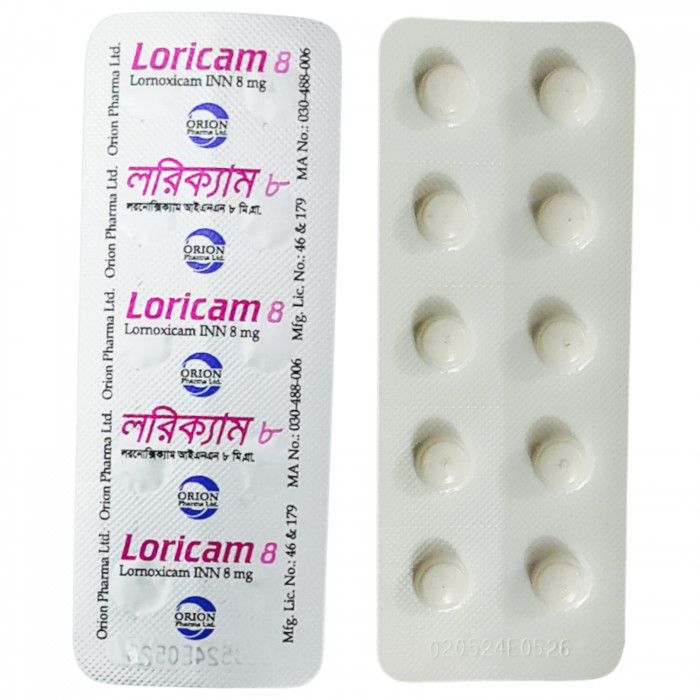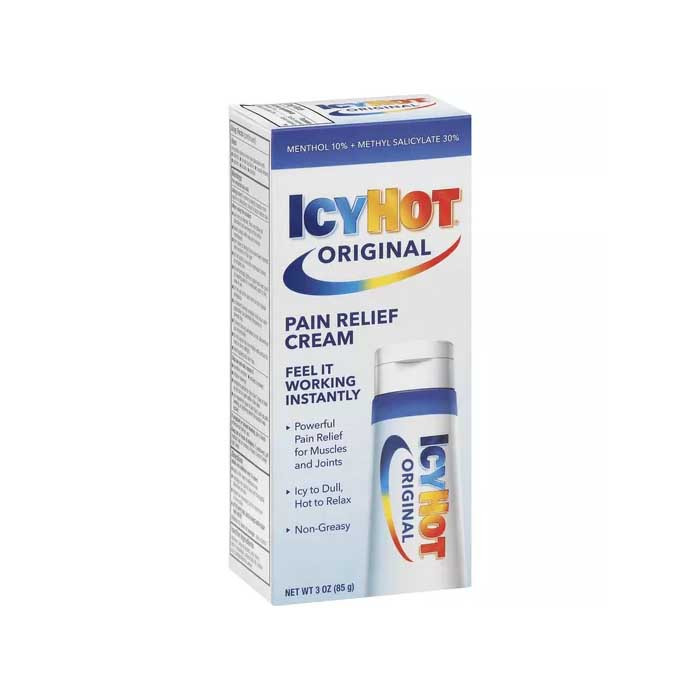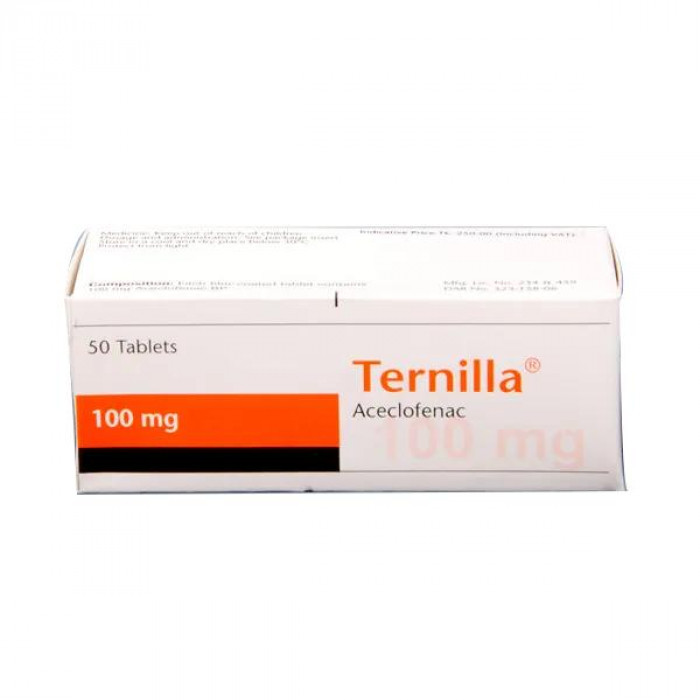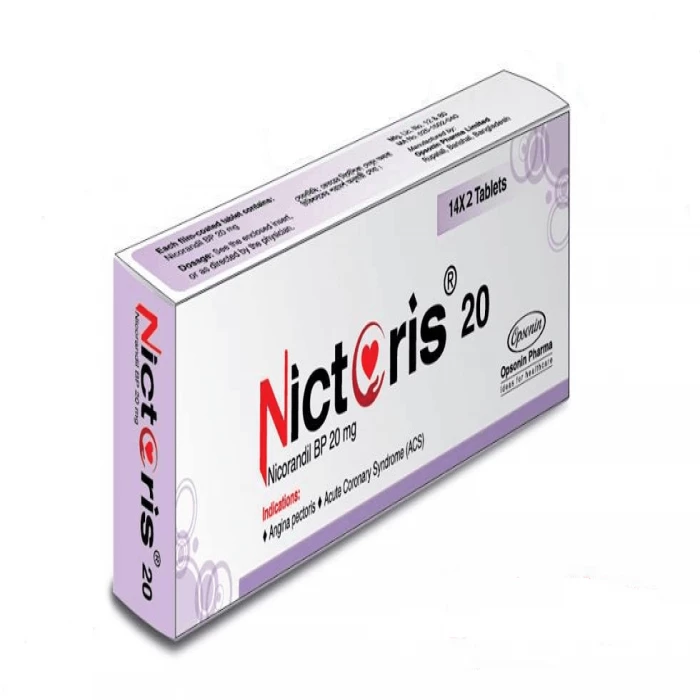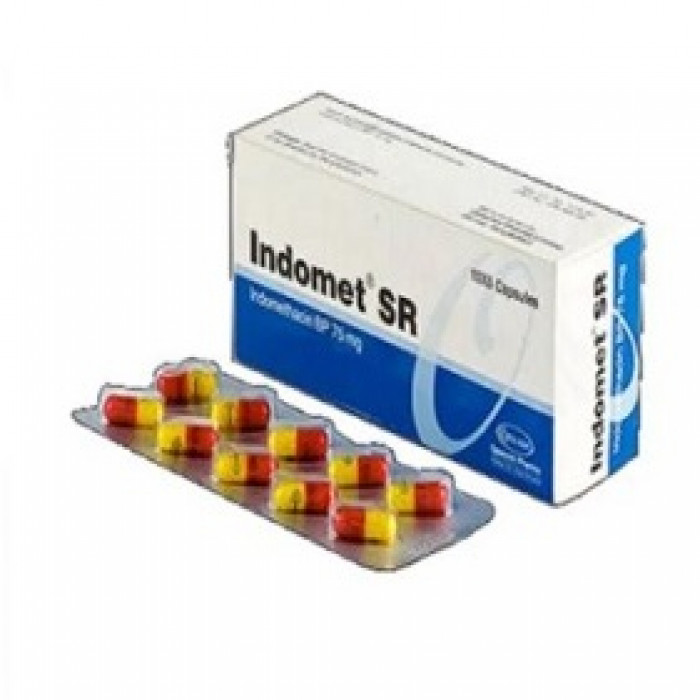
✔ 100% Authentic Product
👁️ Currently Viewing 4540
Indomet SR 75mg Capsule
Indomet SR 75mg Capsule is used to treat-
- Mild to moderate pain and swelling caused by osteoarthritis (wearing away of your bone's flexible tissues),
- Rheumatoid arthritis (pain and swelling in joints),
- Gout (deposition of crystals between your joints),
- Ankylosing spondylitis (fusion of small bones in your spine).
Discount
Price: ৳ 38
MRP:
৳
40
5%
Off

100% Genuine Products, Guaranteed

Safe & Secure Payments, Always

Fast, Secure & Efficient Delivery

Proper Packaging
 Cash on Delivery - All over Bangladesh
Cash on Delivery - All over Bangladesh Regular Delivery - 12-24 Hours, Dhaka City* Charge Tk.39-59
Regular Delivery - 12-24 Hours, Dhaka City* Charge Tk.39-59 Regular Delivery - 24-48 Hours, Other Cities* Charge Tk.99-110
Regular Delivery - 24-48 Hours, Other Cities* Charge Tk.99-110
 ফ্রি ডেলিভারিঃ - ৯৯৯ টাকা+ অর্ডারে, ঢাকা
শহরে
ফ্রি ডেলিভারিঃ - ৯৯৯ টাকা+ অর্ডারে, ঢাকা
শহরে ফ্রি ডেলিভারিঃ - ২৯৯৯ টাকা+ অর্ডারে, ঢাকার
বাহিরে
ফ্রি ডেলিভারিঃ - ২৯৯৯ টাকা+ অর্ডারে, ঢাকার
বাহিরে
100% Genuine Products, Guaranteed
Safe & Secure Payments, Always
Fast, Secure & Efficient Delivery
Proper Packaging
 Cash on Delivery - All over Bangladesh
Cash on Delivery - All over Bangladesh Regular Delivery - 12-24 Hours, Dhaka City* Charge Tk.39-59
Regular Delivery - 12-24 Hours, Dhaka City* Charge Tk.39-59 Regular Delivery - 24-48 Hours, Other Cities* Charge Tk.99-110
Regular Delivery - 24-48 Hours, Other Cities* Charge Tk.99-110 ফ্রি ডেলিভারিঃ - ৯৯৯ টাকা+ অর্ডারে, ঢাকা
শহরে
ফ্রি ডেলিভারিঃ - ৯৯৯ টাকা+ অর্ডারে, ঢাকা
শহরে ফ্রি ডেলিভারিঃ - ২৯৯৯ টাকা+ অর্ডারে, ঢাকার
বাহিরে
ফ্রি ডেলিভারিঃ - ২৯৯৯ টাকা+ অর্ডারে, ঢাকার
বাহিরে
✅ Description:
Indomet SR 75mg Capsule contains Indomethacin, which belongs to the Non-Steroidal Anti-Inflammatory Drugs group. It is used to treat swelling and moderate to severe inflammatory diseases of the joints, such as rheumatoid arthritis, osteoarthritis, and degenerative hip disease. It also treats other types of pain, including sprains, strains, post-operative pain, lower back pain, and pain due to periods or gout.
Before taking Indomet SR 75mg Capsule, inform your doctor if you have certain medical conditions, such as angioneurotic edema, peptic ulcers, nasal polyps, or severe liver, kidney, or heart problems. Additionally, let your doctor know if you have a history of high blood pressure, bleeding or blood clotting disorders, mental health problems, epilepsy, Parkinson's Disease, severe infection, fluid retention, asthma, gastrointestinal diseases, systemic lupus erythematosus, diabetes, or circulation problems.
Safety Advices

Alcohol
UNSAFE
Avoid consumption of alcohol while taking Indomet SR 75mg Capsule as it may increase the risk of ulcers and bleeding in the stomach.

Pregnancy
CONSULT YOUR DOCTOR
Indomet SR 75mg Capsule is not recommended for use in pregnant women. Consult with your physician before taking it.

Breastfeeding
UNSAFE
Indomet SR 75mg Capsule is not recommended for use in breastfeeding women. Consult with your physician before taking it.

Driving
CAUTION
Do not drive or operate any machinery if you feel dizziness or drowsiness while taking Indomet SR 75mg Capsule. Consult your physician.

Kidney
CONSULT YOUR DOCTOR
Indomet SR 75mg Capsule is not recommended for use in patients with severe kidney problems or advanced renal disease. Indomet SR 75mg Capsule should be used with caution in patients with renal impairment. Consult your doctor before taking Indomet SR 75mg Capsule.

Liver
UNSAFE
Indomet SR 75mg Capsule is not recommended for use in patients with severe liver problems. Indomet SR 75mg Capsule should be used with caution in patients with hepatic impairment. Consult your doctor before taking Indomet SR 75mg Capsule
✔️ Uses of Indomet SR 75mg Capsule
- Osteoarthritis
- Rheumatoid Arthritis
- Ankylosing Spondylitis
- Bursitis
- Tendinitis
- Acute Gout
✔️ How does Indomet SR 75mg Capsule work?
Indomet SR 75mg Capsule contains Indomethacin, which is a Non-Steroidal Anti-Inflammatory Drug (NSAID) that works by inhibiting the action of the enzymes cyclooxygenase-1 and 2 (COX-1 and COX-2), which are responsible for the synthesis of prostaglandins. By blocking the production of prostaglandins, which are chemical substances responsible for pain and inflammation, Indomet SR 75mg Capsulereduces inflammation and provides relief from pain.
✔️ Side Effects of Indomet SR 75mg Capsule
- Acid or sour stomach
- Diarrhea
- Nausea and Vomiting
- Indigestion
- Fever with chills
- Skin rash
- Dizziness
- Headache
- Ringing or buzzing in the ears
- Constipation
- Unusual tiredness and weakness
- Visual disturbances
✔️ Quick Suggestions:
- You have been prescribed Indomet SR 75mg Capsule to relieve pain and inflammation. Acupuncture, massage, and physical therapy may also be helpful.
- Take it with food or milk to prevent an upset stomach.
- Take it as per the dose and duration prescribed by your doctor. Long-term use may lead to serious complications such as stomach bleeding and kidney problems.
- It may cause dizziness, drowsiness, or visual disturbances. Use caution while driving or doing anything that requires concentration.
- Avoid smoking and alcohol consumption.
- Inform your doctor if you have a history of heart disease or stroke.
- Your doctor may regularly monitor your kidney function, liver function, and levels of blood components if you are taking this medicine for long-term treatment.
✔️ Indication
Indomethacin is a medication prescribed to address various medical conditions. It is utilized in the treatment of different forms of arthritis, including rheumatoid arthritis (inflammation of joints), ankylosing spondylitis (inflammation of the spine), and osteoarthritis (degenerative joint disease). Additionally, it can be used to manage gout, which is a type of non-articular rheumatism characterized by sudden inflammation in areas such as bursae, synovial membranes, and tendons.
✔️ Pharmacology
Indomethacin is a nonsteroidal anti-inflammatory drug (NSAID) that possesses properties of reducing fever and relieving pain. It exhibits anti-inflammatory, analgesic, and antipyretic effects, as supported by various pharmacological studies. Unlike corticosteroids, its mechanism of action is not associated with the pituitary gland or the adrenals. When taken orally, indomethacin is rapidly absorbed by the body, reaching peak plasma levels within approximately 2 hours. Around two-thirds of the absorbed dose is excreted in the urine, while the remaining portion is eliminated through feces. Within 24-48 hours, approximately 90% of a single dose is cleared from the body. Controlled clinical trials have demonstrated the effectiveness of indomethacin in treating rheumatic disorders. It helps alleviate pain, reduce joint swelling and edema, and improve joint mobility.
✔️ Dosage & Administration of
For the treatment of rheumatoid arthritis, ankylosing spondylitis, and osteoarthritis, the initial recommended dose of indomethacin sustained-release capsule is 75 mg once daily. If the condition is severe, the dose may be increased to 75 mg twice daily.
In the case of acute gout attacks, a dose of 75 mg sustained-release capsule taken twice daily may help in controlling the symptoms.
For acute non-articular rheumatism, such as bursitis, synovitis, and tendinitis, the recommended dosage is 1-2 sustained-release capsules daily, depending on the severity of the condition.
Take REJOINT TABLET as advised by your physician. Swallow the medicine with a glass of water. Do not crush or chew. Your doctor will decide the correct dose and duration for you depending upon your age, body weight and disease condition.
✔️ Interaction
Indomethacin may interact with several medications, and these interactions should be taken into consideration:
- Methotrexate: Indomethacin may increase the plasma levels of methotrexate, which can lead to potential side effects. Close monitoring is recommended when these medications are used together.
- Warfarin: There is an increased risk of gastrointestinal bleeding when indomethacin is taken concomitantly with warfarin. Regular monitoring of bleeding parameters is important in such cases.
- Hydralazine, furosemide, beta-blockers (e.g., atenolol, propranolol, oxprenolol), or thiazide diuretics: Indomethacin may reduce the hypotensive effects of these medications. Close monitoring of blood pressure is advised when using them together.
- Potassium-sparing diuretics, ACE inhibitors, or potassium supplements: There is an increased risk of hyperkalemia (high potassium levels) when indomethacin is used with these medications. Regular monitoring of potassium levels is recommended.
- Ciclosporin or triamterene: Indomethacin may increase the nephrotoxic effects (toxic effects on the kidneys) of these medications. Caution is advised when using them together, and renal function should be closely monitored.
- Probenecid: Indomethacin's plasma concentration may increase when used with probenecid. Dose adjustment may be necessary in such cases.
- Aminoglycosides (e.g., amikacin, gentamicin) in premature neonates: Indomethacin may increase the plasma levels of aminoglycosides in premature neonates. Close monitoring for potential side effects is recommended.
- Haloperidol: Indomethacin may enhance the antipsychotic effect of haloperidol, leading to severe drowsiness and confusion. Caution is advised when using these medications together.
- Aluminum- or magnesium-containing antacids: These antacids may reduce gastrointestinal disorders associated with indomethacin. However, it is important to note that combining these medications may not completely eliminate the risk of gastrointestinal side effects.
- Diflunisal: Diflunisal can decrease the renal clearance of indomethacin and increase its plasma concentrations, which may increase the risk of gastrointestinal hemorrhage. Concurrent use should be avoided.
✔️ Contraindications
Indomethacin is contraindicated in patients with known hypersensitivity or allergy to indomethacin or any of its components. It should not be used in individuals with active peptic ulcers, gastrointestinal (GI) bleeding, or ulcerative colitis. Additionally, caution should be exercised in patients with a history of these conditions, as they may be at an increased risk of experiencing GI side effects such as bleeding or perforation.
In cases where indomethacin is necessary and there is a concern about GI side effects, the use of indomethacin suppositories may be considered. Suppositories can help bypass the stomach and reduce the risk of GI irritation or ulceration.
✔️ Pregnancy & Lactation
Indomethacin should be used with caution during pregnancy, particularly after 32 weeks of gestation, due to the potential risk of heart issues in the infant. It is generally recommended to avoid indomethacin use in pregnant women unless the potential benefits outweigh the risks and are under the supervision of a healthcare professional.
In addition, indomethacin should be avoided in women with a history of ulcers, bleeding disorders, or kidney or liver disease. These conditions may increase the risk of complications or adverse effects associated with indomethacin use. It is important to discuss any existing medical conditions with a healthcare professional before starting indomethacin or any other medication. They can provide appropriate guidance and determine the best course of treatment for each individual.
✔️ Precautions & Warnings
Indomethacin should be used with caution or avoided in patients with certain conditions or risk factors. These include:
Known cardiovascular disease or risk factors for cardiovascular disease: Indomethacin can increase the risk of cardiovascular events such as heart attack or stroke. Therefore, patients with pre-existing cardiovascular conditions or those at high risk for these conditions should be closely monitored when using indomethacin.
Fluid retention: Indomethacin can cause fluid retention and edema. Patients with a history of fluid retention or conditions such as heart failure should use indomethacin with caution and under medical supervision.
History of gastrointestinal (GI) disease: Indomethacin can increase the risk of GI bleeding or ulcers. Patients with a history of GI bleeding, ulcers, or other GI disorders should exercise caution when using indomethacin and discuss the potential risks with their healthcare provider.
History of mental depression or other psychiatric disorder, epilepsy, or parkinsonian syndrome: Indomethacin may worsen symptoms or increase the risk of certain psychiatric or neurological conditions. It should be used with caution in patients with these conditions and monitored closely for any changes in symptoms.
Hepatic and renal impairment: Indomethacin is metabolized and eliminated by the liver and kidneys. Patients with impaired liver or kidney function may require dosage adjustments or closer monitoring when using indomethacin.
Elderly and children: Elderly patients and children may be more susceptible to the side effects of indomethacin. Close monitoring and appropriate dosage adjustments may be necessary.
Pregnancy and lactation: The use of indomethacin during pregnancy is generally not recommended due to limited clinical data. It should be used in pregnancy only if clearly needed and under the guidance of a healthcare professional. Indomethacin can pass into breast milk, so its use is generally not recommended during lactation. However, the American Academy of Pediatrics committee considers it compatible with nursing, so the decision should be made in consultation with a healthcare provider.
✔️ Storage Conditions
Store in a cool and dry place protected from light. Keep out of the reach of children.
⚠️Disclaimer:
At ePharma, we’re committed to providing accurate and accessible health information. However, all content is intended for informational purposes only and should not replace medical advice from a qualified physician. Please consult your healthcare provider for personalized guidance. We aim to support, not substitute, the doctor-patient relationship.




